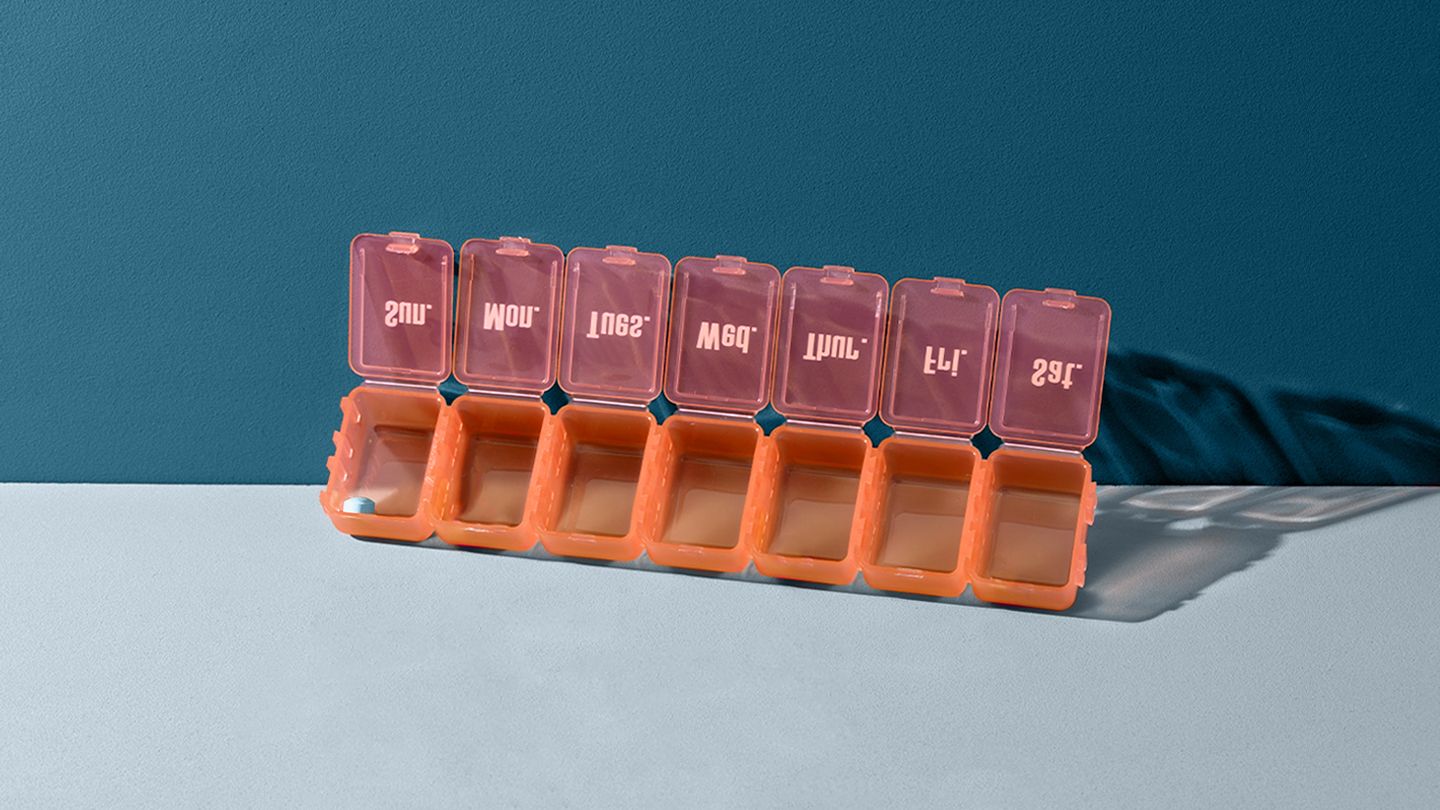Introduction
Adderall is a common prescription medication used to treat attention deficit hyperactivity disorder (ADHD) and narcolepsy. It's a stimulant that works by increasing the brain's ability to focus and pay attention.
While Adderall is generally considered safe when taken as prescribed, some people have concerns about potential long-term effects like whether Adderall can cause cancer.
What is Adderall?
Adderall contains amphetamine salts that stimulate the central nervous system and affect chemicals in the brain, such as dopamine and norepinephrine. This results in increased concentration, focus, and energy levels.
The two main formulations of Adderall are:
- Adderall - Contains equal amounts of amphetamine salts
- Adderall XR - Extended-release version that lasts longer
In addition to ADHD and narcolepsy, Adderall may be prescribed off-label for other conditions such as depression, chronic fatigue syndrome, and obesity.
Adderall Usage Statistics
When used appropriately, Adderall can greatly improve quality of life for those struggling with ADHD symptoms. However, Adderall has also seen a spike in recreational use and misuse in recent years.
Some key statistics on Adderall usage include:
- Over 16 million Adderall prescriptions were written in 2010
- Estimated that 5-10% of high school and college students have used Adderall recreationally
- Emergency room visits related to Adderall misuse rose 156% from 2005 to 2010
Can Adderall Cause Cancer?
Currently, there is no conclusive evidence showing that Adderall can directly cause cancer. However, there are some reasons why people may be concerned about a potential link between Adderall and cancer risk.
Effects on the Body
As a stimulant, Adderall affects many systems of the body, including:
- Brain function and neurotransmission
- Hormones and glands like testosterone
- Heart rate and blood pressure
- Breathing rate
- Digestive system
- Circadian rhythms/sleep cycles
Its possible these types of physiological effects could potentially impact cancer risk down the line. However, more research is still needed.
Oxidative Stress
Some research suggests stimulant drugs like Adderall may cause oxidative stress in neurons and cells by producing free radicals. Oxidative stress is a known contributor to aging, cell damage, and disease.
While promising, these studies have only been conducted on animals so far. The potential relationship between Adderall, oxidative stress markers, and cancer risk requires further investigation.
Other Behavioral Factors
There are also some secondary ways that Adderall use could influence behaviors that we know impact cancer risk. For example:
- Poor Sleep - Adderall may disrupt normal sleep cycles, which has been shown to increase cancer risk over time.
- Nutrient Deficiencies - Side effects like appetite suppression and weight loss could potentially lead to deficiencies in cancer-fighting nutrients.
- Overdose Risks - Very high Adderall doses can severely impact organ functioning and have many adverse effects.
Adderall Shortages and Cancer Risk
In recent years, many people have found it increasingly hard to obtain supplies of generic Adderall. This has led some to wonder what cancer risks could arise from Adderall shortages.
Substitution with Other Stimulants
Due to consistent shortages, both patients and recreational users have had to seek other substitutes, such as:
- Ritalin
- Cyclert
- Dexedrine
- Vyvanse
- Methylphenidate
All of these drugs have potential side effects and risks as well, especially when misused or abused. But very little research has compared the long-term impact of these other stimulants to Adderall.
More research is needed to determine if chronic use of these other drugs as a replacement for Adderall could impact the likelihood of developing certain cancers later in life.
Increased Stress Burden
Another consequence of these shortages is increased stress levels for those relying on Adderall. Stress is already very high in groups commonly prescribed Adderall, like those with ADHD.
Constant anxiety, worry, and feeling overwhelmed place greater burden on the body. While inconclusive so far in humans, some animal research links chronic stress to increased cancer risk and tumor growth rates.
Reducing Cancer Risks with Adderall
Until more definitive research is completed, there is no guarantee about whether Adderall contributes to the development of cancer over the long run.
However, those taking Adderall can still adopt some lifestyle measures to lower the chances of this happening:
Take as Prescribed
It's essential to use Adderall only as prescribed by your doctor. Recreational abuse or dangerously high doses raise your risk for many negative health effects.
Good Sleep Hygiene
Make getting enough high-quality sleep every night a top priority. Follow good sleep hygiene principles for optimal rest.
Healthy Diet and Exercise
Counteract potential side effects like appetite or weight changes with a nutrient-dense diet full of cancer-fighting foods. Pair this with regular exercise appropriate for your fitness level and health status.
Seeking nutritional counseling may also help overcome any diet-related issues stemming from Adderall use.
Stress Reduction Techniques
Actively manage stress through methods like meditation, yoga, deep breathing, and mindfulness. Getting anxiety and excessive stress under control reduces burden on your nervous system and hormonal pathways.
Regular Health Screenings
Go in for cancer screening tests like mammograms, colonoscopies, lung scans, and skin checks as recommended for your age and risk profile. Catching any potential tumors early on makes them more treatable.
The Bottom Line
There are theoretical reasons why Adderall usage could influence someone's cancer risk profile down the road. However, more direct research is necessary to make precise connections.
Speak to your doctor about any concerns regarding Adderall and cancer. Be honest about your dosage, frequency, and length of usage as well. Stay vigilant with screening tests appropriate for your demographics.
While awaiting further evidence, also focus on sufficient sleep, nutrition, exercise, and stress relief alongside responsible Adderall use minimize risks.
FAQs
Is There Proof That Adderall Causes Cancer?
No, at this time there is no definitive evidence that directly links Adderall usage to increased cancer risk or tumor development. The potential connections are theoretical and need much more research.
Can Long-Term Use of Adderall as a Substitute Impact Cancer Chances?
It's unclear if turning to alternatives like Ritalin or Dexedrine long-term due to Adderall shortages changes cancer odds. There’s little comparative research on the side effects and health implications of chronic use with these substitute stimulants.
Does Adderall Contribute to Behaviors That Then Increase Cancer Risk?
Potentially. For example, Adderall may make it harder to sleep well, lead to poor nutrition, or heighten stress levels for some. All of those factors are independently tied to higher cancer risk.
Should Those Taking Adderall Follow Specific Cancer Screening Guidelines?
There are no unique screening guidelines for those on Adderall currently. However, staying up to date with all screenings like mammograms and skin checks based on your demographics and risk factors is recommended.
Disclaimer: This article is for informational purposes only and does not constitute medical advice. Always consult with a healthcare professional before starting any new treatment regimen.
Related Coverage
The Adderall shortage is making getting prescriptions difficult without insurance. Here are tips for working with your doctor, finding discounts, using prescription savings plans, and more....
If struggling with ADHD symptoms, being evaluated by a doctor is key. Here is guidance on symptoms to track, questions for doctors, and steps in the diagnosis process....
If your Adderall doesn't seem to help your ADHD much, wears off too fast, or causes no side effects, your dose could be too low. Learn the top signs your medication needs increasing....
The ongoing Adderall shortage has made getting prescriptions difficult. Here's guidance on seeking alternative medications, non-drug therapies, and assistance programs....
Childress has a range of homestyle eateries like Boulevard Cafe serving comfort foods alongside fast food chains like McDonald's and Sonic for quick bites along Highway 287....
Learn effective strategies to help your child with ADHD succeed academically and behaviorally at school. Tips cover working with teachers, home routines, organization and more....
ADHD time blindness makes time feel elusive. Learn why it happens and find practical strategies to manage your unique relationship with time....
Psychiatrists can diagnose ADHD in both children and adults and create a treatment plan that may include prescribing medications like Adderall....
Shortages of ADHD medication Ritalin and its generic forms are impacting access in 2023. Learn more about why this is happening, possible alternatives, and ways to mitigate the issue....
Middle school poses challenges for ADHD students. Learn effective strategies to help ADHD children get organized, improve time management, boost focus, support learning, and thrive....







